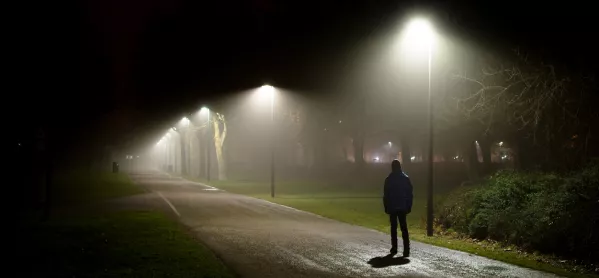At this time of year, it is still dark outside when I get up for work every morning. In fact, at the time of writing, sunrise is at 7.46am, which means I am already at school when the sun comes up.
The sun sets at 4.46pm, and although I finish teaching during daylight hours, it hardly feels like it with the sky as miserable as it has been recently.
I’m pining for the sunshine, for long days and blue skies. I don’t even mind the cold and the frost, I just want to be rid of this infernal dark and grey. And I’m not alone.
According to the British Medical Journal, as many as 6 per cent of Britons have a major form of seasonal affective disorder, or SAD. What’s more, SAD occurs more commonly in women - and given that the majority of teachers and teaching assistants are women, that means that every winter, huge numbers of people in our schools are experiencing severe seasonally induced depression.
This is more than just a case of “California dreaming”; up to 35 per cent of patients suffering from SAD require hospitalisation at some point. And on top of those with serious symptoms, many more will experience milder seasonal changes in mood, including tiredness and sleepiness (hypersomnia), lowered mood, increased appetite, food cravings and weight gain.
‘Blue sky’ solutions to tackle SAD
While students might not suffer from SAD directly (the majority of cases manifest in patients in their late 20s, and the disorder is rare in children and adolescents), of course they suffer indirectly from a significant number of teachers experiencing mild to severe depression from November to March - the crux of the school year.
Tired teachers are more likely to be snappy and irritable, which infringes on positive student-teacher relationships. Being too exhausted to go the extra mile for students impacts on the learning of those who need extra help. Basically, it’s a problem.
So, what can schools do to help? Here are some blue-sky ideas.
- Introduce a seasonal timetable, with shorter days in the winter, and longer ones in the summer. A radical step, perhaps, but one that could transform those dark winter mornings. However, I must stress that there is no scientific research that this would help - not yet, anyway.
- Install lights that mimic the wavelength and intensity of sunlight in classrooms. Scientists disagree on the effectiveness of light therapy, but staff and students at a school in Sweden have reported feeling more energetic post-installation.
- Spike the school food with Vitamin D. The link between low levels of Vitamin D and depression and anxiety is well-evidenced, but using Vitamin D as a treatment needs further investigation.
- Reverse the school calendar and have the long holiday over the most miserable months. Radical again, and there are no supporting scientific studies, but I don’t think it is as outlandish as is might sound, given the number of teachers being affected. Why shouldn’t we be in England when it feels like California and go on holiday at this time of year - when we need it most?
Emily Seeber is head of science at Bedales School in Hampshire
Want to keep up with the latest education news and opinion? Follow Tes on Twitter and Instagram, and like Tes on Facebook




